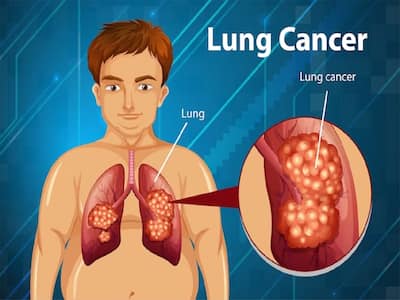
Catching lung cancer in its earliest stages makes treatment more effective and reduces the chance of dying.
Early detection plays a pivotal role in surviving lung cancer, as it significantly improves the chances of success of the treatment regimen. Lung cancer detected at an early stage can lead to a cure rate as high as 80 to 90%. Computed tomography (CT) scan as a tool for diagnosis for lung cancer has shown promising results with a 20-year survival rate of 80%. However, the average 5-year survival rate for lung cancer patients is as low as 18.6%, mainly because only 16% of the cases are diagnosed early. Therefore, early detection and intervention are crucial for curability in the case of lung cancer.
Here, Dr KVVR Lakshmi, MD & Sr Consultant Biochemistry at TRUSTlab Diagnostics, has listed some important tests to detect lung cancer early.
Tests used to detect lung cancer early
Screening with Low Dose CT (LDCT) and Chest X-rays is highly recommended for early detection of lung cancer, particularly in individuals who are active smokers or have a history of smoking. While these screening methods are effective, they may not detect all lung cancers, and not all detected cancers will be in the early stages.
Routine blood tests are also not sufficient for diagnosing lung cancer, but they do help identify genetic mutations in individuals already diagnosed with the disease. Common genetic mutations tested include EGFR, KRAS, and ALK.
For definitive diagnosis, tumor markers play a significant role. These are found in tumor tissues obtained through biopsies. Though there are no ideal tumor markers for identifying lung cancer, they can serve as indicators in the diagnosis of suspected cases. The commonly used markers are Pro-gastrin releasing peptides (PGRP), Neuron-Specific Enolase (NSE), Squamous Cell Carcinoma Antigen (SCCA), Soluble fragments of cytokeratin 19 (CyFRA 21-1), and Carcinoma Embryonic Antigen (CEA). (CEA). These have been observed to show considerable sensitivity to lung cancer when either used singly or as a combination of 2 or 3 and they thus help in the detection of the disease.
Here’s how can prevent lung cancer
Lung cancer profoundly impacts a person’s daily life, affecting both physical and mental health, and making even simple tasks challenging. Preventing lung cancer is possible by adopting healthy habits like:
READ RELATED: Trader Joe's Just Revealed How New Products Get Approved
- Avoid smoking and exposure to second-hand smoke.
- Minimize exposure to occupational health risks.
- Maintain a healthy weight and engage in regular physical exercise or yoga.
Cigarette smoking remains the primary risk factor for lung cancer, contributing to about 80 to 90% of lung cancer deaths. Quitting smoking and adopting a healthy lifestyle can significantly reduce the risk of developing cancer and promoting overall well-being.
Engaging in aerobic activities such as walking, running, or jumping rope can provide efficient workouts for the heart and lungs.
Total Wellness is now just a click away.
Follow us on
Don’t Miss Out on the Latest Updates.
Subscribe to Our Newsletter Today!
window.addEventListener(‘load’, (event) => {
$(‘#commentbtn’).on(“click”,function(){
(function(d, s, id) { var js, fjs = d.getElementsByTagName(s)[0]; if (d.getElementById(id)) return; js = d.createElement(s); js.id = id; js.src = “//connect.facebook.net/en_US/sdk.js#xfbml=1&version=v2.3”; fjs.parentNode.insertBefore(js, fjs);}(document, ‘script’, ‘facebook-jssdk’));
$(“.cmntbox”).toggle();
});
});









